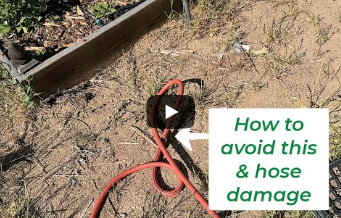The physical, mental and emotional benefits of gardening
Gardening is often seen as a relaxing hobby—one that allows you to connect with nature and unwind. But have you ever considered the array of benefits that come with planting and tending to a garden? The act of gardening goes beyond making your yard look beautiful; it also offers numerous health benefits that can enrich your life in various ways. In this blog post, we’ll explore why gardening is good for you, both body and soul.
Physical Benefits: More than Just Dirty Hands
Exercise in Disguise
Gardening might not be the first thing that comes to mind when you think about exercise, but don’t underestimate the physicality involved. From digging holes and planting bulbs to pulling weeds and trimming hedges, gardening tasks engage various muscle groups and require different types of movements. The American Heart Association even counts gardening as moderate exercise, which can help to improve cardiovascular health.
Sunshine and Vitamin D
Outdoor gardening exposes you to natural sunlight, which stimulates the production of vitamin D in your body. Vitamin D is essential for bone health and immune system function. However, make sure to take precautions like wearing sunscreen to protect your skin from harmful UV rays.
Better Nutrition
If you’re planting fruits and vegetables, gardening offers the added benefit of providing fresh, organic produce right from your backyard. This not only ensures that you get the most nutrients from your food, but it also encourages a balanced diet rich in fruits and vegetables.
Mental Benefits: Peace of Mind and More
Stress Reduction
The repetitive and focused nature of tasks like weeding or watering can have a meditative quality, helping to reduce stress and anxiety. A study published in the Journal of Health Psychology found that gardening led to decreases in both cortisol levels and feelings of depression among participants.
Cognitive Function
Some research suggests that the physical activity associated with gardening can help prevent cognitive decline as you age. Activities that require dexterity and learning—like gardening—can stimulate neural connections, thereby keeping your brain active and sharp.
Creativity and Problem-Solving
Designing and planning a garden layout exercises your creativity and strategic thinking. You’ll have to consider various factors like soil quality, sunlight, and compatibility between different plants. These aspects make gardening a challenging and rewarding experience that can enhance your problem-solving skills.
Emotional Benefits: Soul Food
Connection to Nature
Gardening fosters a connection to the earth and the natural cycle of growth and decay. This connection can be spiritually enriching and helps many people feel a sense of purpose.
Improved Mood
The act of nurturing plants and watching them grow can evoke a sense of achievement and happiness. For some, gardening serves as a form of therapy, offering emotional well-being and a break from the stresses of everyday life.
Community Bonds
Whether you’re sharing gardening tips with neighbors or donating surplus produce to a local food bank, gardening can help forge and strengthen community bonds. Many people find that this aspect of gardening is particularly fulfilling.
Conclusion: A Blooming Good Idea
So, is gardening good for you? The answer is a resounding yes! From physical exercise to mental peace, and from emotional well-being to community connection, gardening offers a bouquet of benefits that can greatly improve your quality of life.
Whether you’re a seasoned gardener or a beginner, it’s never too late to pick up a trowel and start planting. After all, the best time to plant a tree was 20 years ago; the second-best time is now.
Happy gardening!
Recent Posts

The Power of Mounding: An Essential Gardening Technique for Healthy Plants

The Ultimate Guide to Philodendron Birkin – Care, Tips, and Benefits

Watering Plants – Indoor Edition

The Advantages of Built-Up Garden Beds: A Gardener’s Best Friend

The Secret Weapon for Lush Blooms: How to Create the Perfect Fertilizer Schedule










